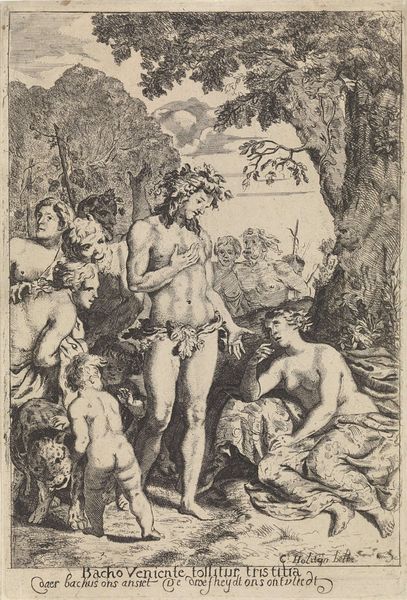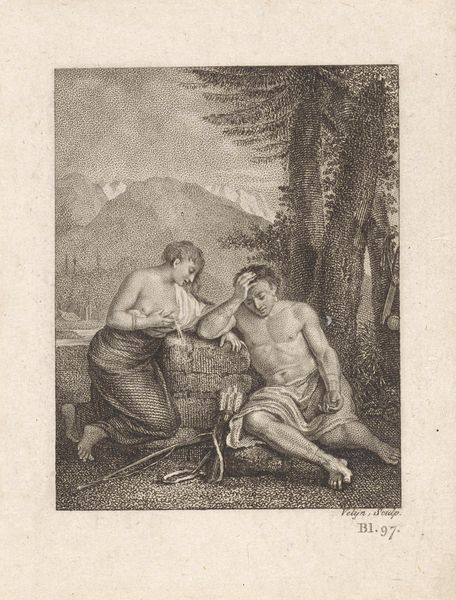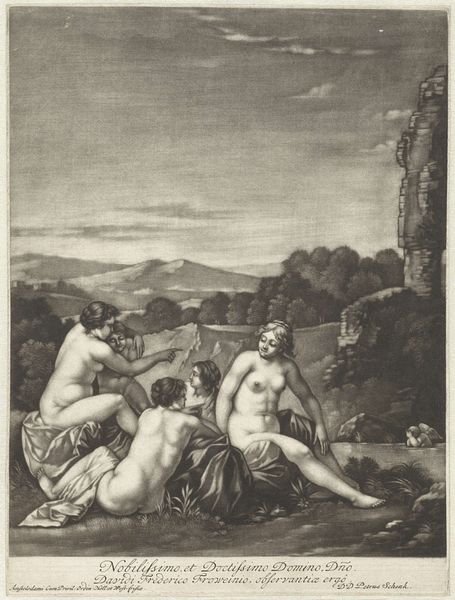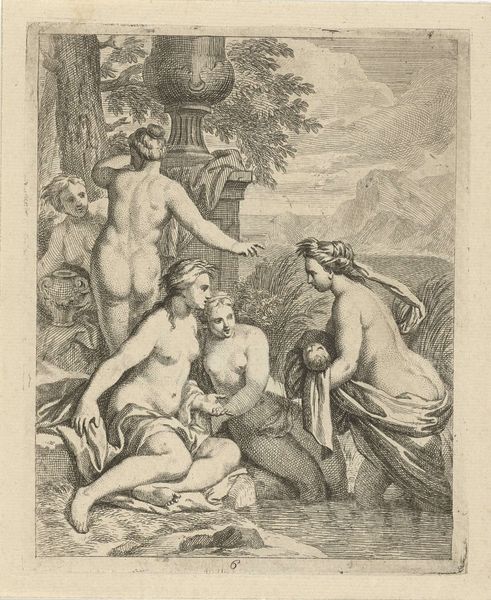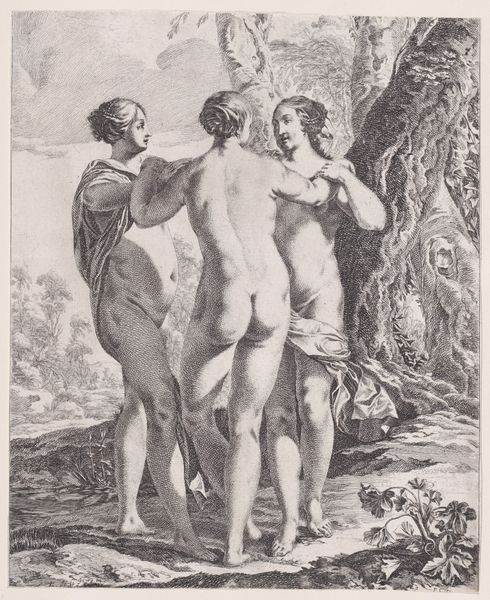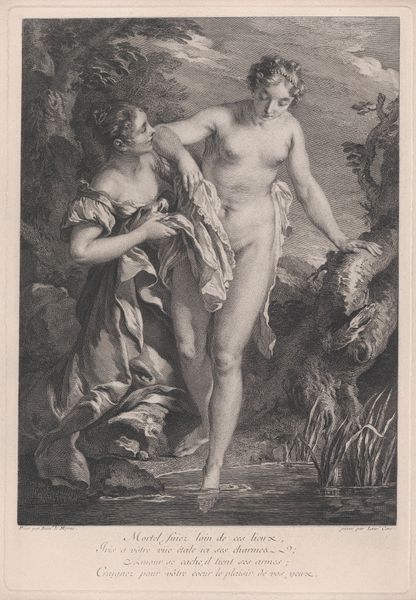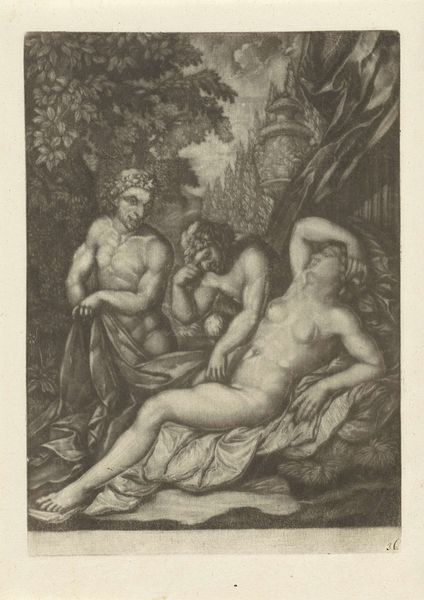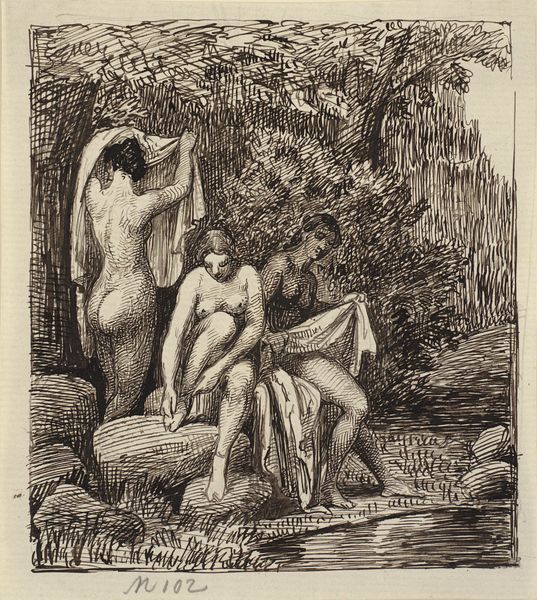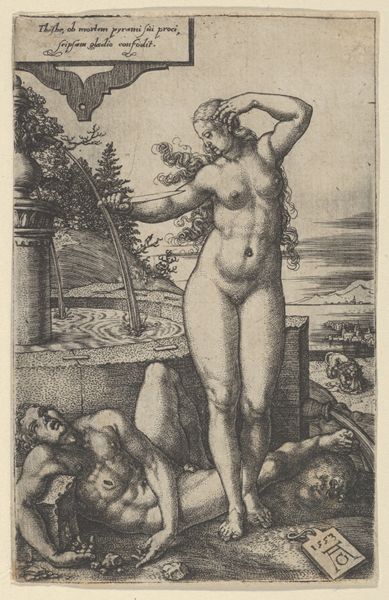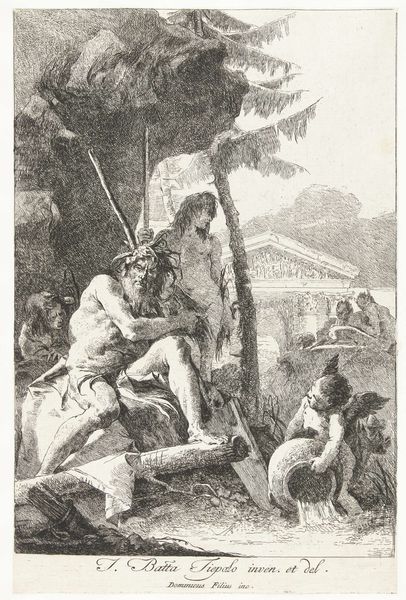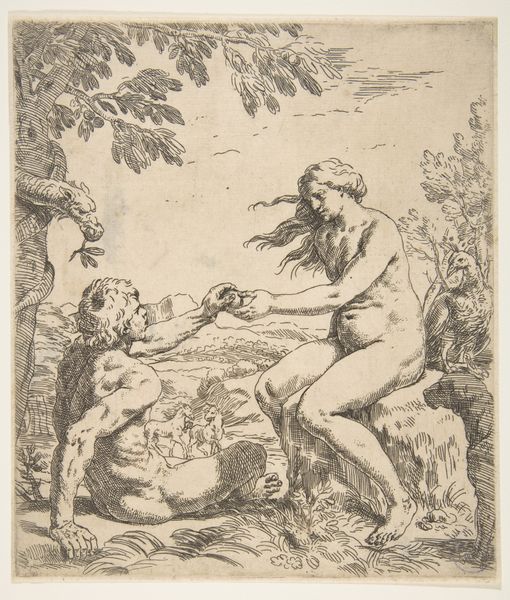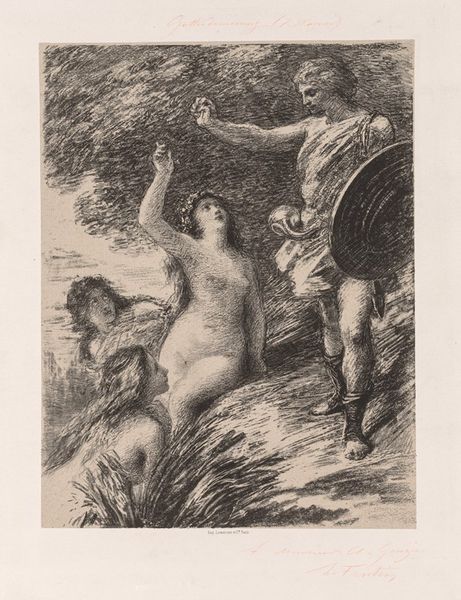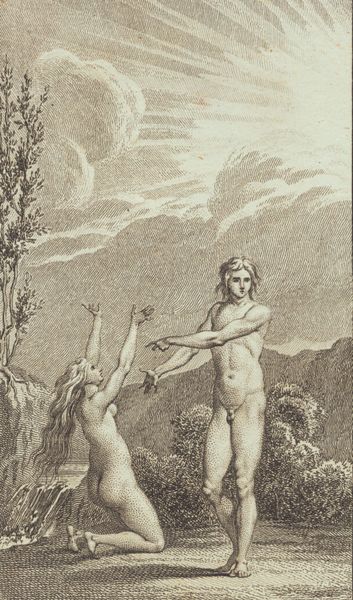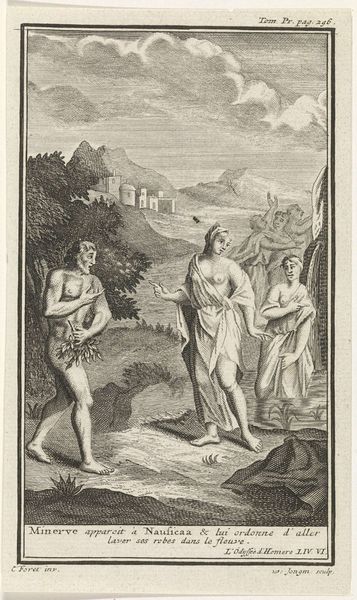
print, engraving
#
baroque
# print
#
landscape
#
figuration
#
history-painting
#
nude
#
engraving
Dimensions: height 246 mm, width 185 mm
Copyright: Rijks Museum: Open Domain
Pieter Schenk created this print, "Bathing Nymphs," around the turn of the 18th century, using an intaglio process. The image began as a polished copper plate. Schenk would have used a sharp tool called a burin to incise lines into the metal. These lines hold the ink. Then, the surface of the plate is wiped clean, and the printmaker presses paper against the plate with considerable force, transferring the ink. The result is a mirror image of the original design, with a slightly raised texture. Look closely, and you can see how the varying density of lines creates a full range of tones, giving form to the figures and depth to the landscape. Printmaking like this demanded technical skill, patience, and close attention to detail, labor that Schenk, as a tradesman, sold on the market. Considering the broader context, this print exists because of the increasing commercialization of art at this time. It demonstrates the way that luxury goods were becoming available to a wider audience, not just an elite. So, next time you see a print, think about the many hands involved in its production, and its role in shaping visual culture as we know it.
Comments
No comments
Be the first to comment and join the conversation on the ultimate creative platform.
